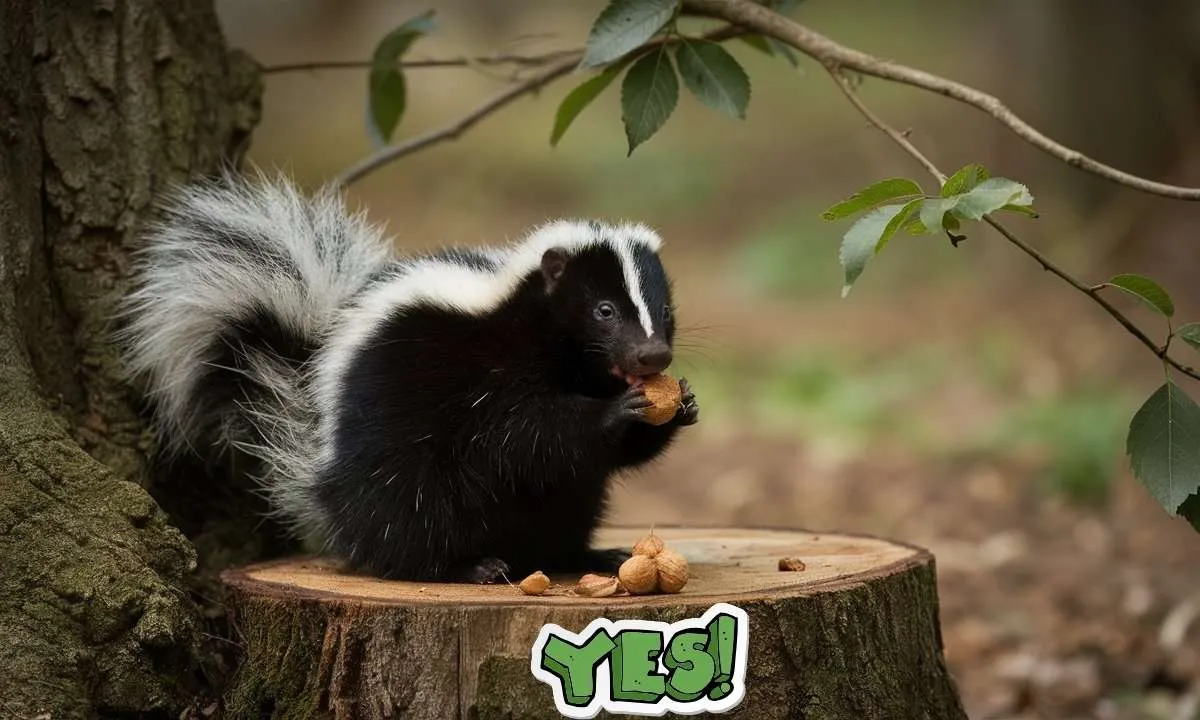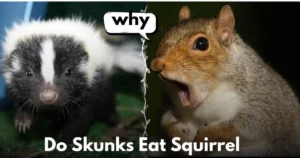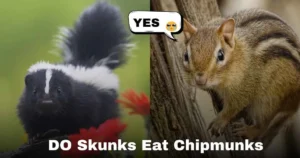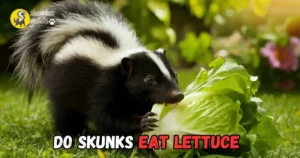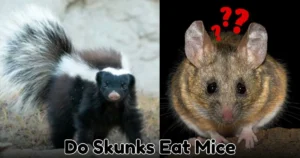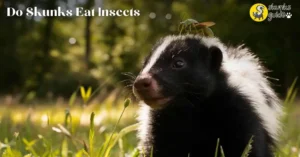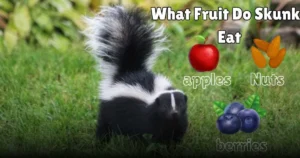Can Skunks Benefit from Eating Nuts?
Skunks have a diverse menu, and nuts are definitely on it! From my experience as a skunk pet owner, I’ve found that these creatures eat a variety of foods, including nuts, fruits, and small animals. Their foraging habits make them fascinating to study and observe. Interested in learning more about skunks and their eating habits? Read on to see how they find their food and what makes their diet so unique!
Do Skunks Eat Nuts?
Curious about what skunks like to munch on? You might wonder, Do Skunks Eat Nuts? Skunks are opportunistic eaters with a varied diet. They often search for easy meals in their environment, which can include a variety of foods. Let’s explore whether nuts are on the menu for these black-and-white creatures.
Natural Nut Consumption
When it comes to skunks and nuts, it’s interesting to note that skunks are not picky eaters. They adapt to their surroundings to find food. Nuts can be a natural choice for them, especially when other food sources are scarce. Here’s what we know about skunks and their nut-eating habits:
- Seasonal Availability: Skunks eat nuts more often in the fall when nuts are abundant.
- Types of Nuts: Skunks are not particular and will consume various nuts like acorns, walnuts, and hickory nuts.
- Foraging Behavior: These animals forage on the ground, making nuts an accessible snack.
Nuts provide essential nutrients that can be beneficial to skunks. They can be a good source of energy and help skunks build fat reserves for winter. However, nuts are not the main component of a skunk’s diet. They are omnivores and enjoy a mix of vegetation and animal proteins.
Impact Of Nuts On Skunks’ Diet
While nuts can be a part of their diet, the impact of nuts on skunks’ diet varies. Skunks typically enjoy a balance of foods depending on what they can find. Here’s how nuts fit into the bigger picture of a skunk’s diet:
| Nutrient | Benefit to Skunks |
|---|---|
| Fats | Energy and warmth during colder months |
| Proteins | Muscle growth and repair |
| Carbohydrates | Immediate energy source |
Nuts can be a healthy snack for skunks but should not be the sole food item. A well-rounded diet for skunks includes insects, small rodents, fruits, and even garbage. This variety is crucial for their overall health and well-being. Too many nuts can lead to nutritional imbalances, just as with any animal. Skunks need a mix of nutrients to thrive.
Nutritional Needs Of Skunks
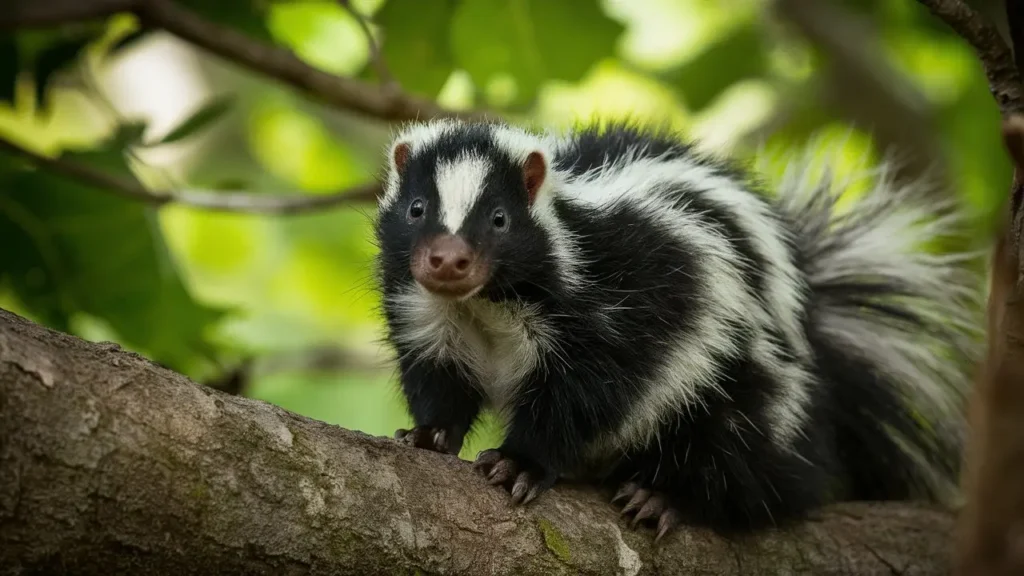
Skunks are curious creatures with a varied diet. They often wander into backyards, foraging for food. Among their favorite snacks are nuts, which provide essential nutrients. Understanding what skunks eat helps us coexist with these striped neighbors.
Balanced Diet Requirements
Skunks need a balanced diet to stay healthy. They are omnivores, which means they eat both plants and animals. A skunk’s menu includes:
- Insects: They are a protein source.
- Fruits: Skunks enjoy berries and fallen fruit for vitamins.
- Small rodents: They provide more protein.
- Nuts: These are great for fats and nutrients.
When nuts are available, skunks will happily munch on them. Nuts offer the fats and energy skunks need, especially in colder months. Here’s a table showing the types of nuts skunks may eat and their benefits:
| Type of Nut | Benefits |
|---|---|
| Acorns | Good for fats and energy |
| Walnuts | Rich in omega-3s and vitamins |
| Peanuts | High in protein and healthy fats |
Skunks also need water to digest their food and stay hydrated. A diverse diet ensures they get all the necessary nutrients.
Essential Nutrients For Skunks
Like all animals, skunks need certain nutrients to thrive:
- Proteins: Vital for growth and repair.
- Fats: Provide energy and keep fur healthy.
- Carbohydrates: Offer energy and help digestion.
- Vitamins and minerals: Key for bone health and immune function.
- Water: Essential for all life processes.
Nuts are a convenient source of these nutrients. They are packed with healthy fats and proteins. Each nut type brings something special to a skunk’s diet. For instance, walnuts have vitamin E and antioxidants. Skunks need a mix of food sources to meet their nutritional needs. A balanced diet helps them maintain their weight, energy levels, and overall health. Let’s look at a skunk’s dietary breakdown:
| Nutrient | Why It’s Important | Good Sources |
|---|---|---|
| Proteins | Builds muscle and repairs tissue | Insects, small rodents, eggs |
| Fats | Stores energy, keeps fur shiny | Nuts, insects, small rodents |
| Carbohydrates | Provides immediate energy | Fruits, nuts, plants |
| Vitamins/Minerals | Boosts immune system, bone health | Fruits, vegetables, nuts |
| Water | Boosts immune system, and bone health | Water sources, wet foods |
Skunks enjoy a variety of foods, and nuts are a key part of their diet. They provide essential nutrients skunks need to live a full life.
Hazards Of Certain Foods
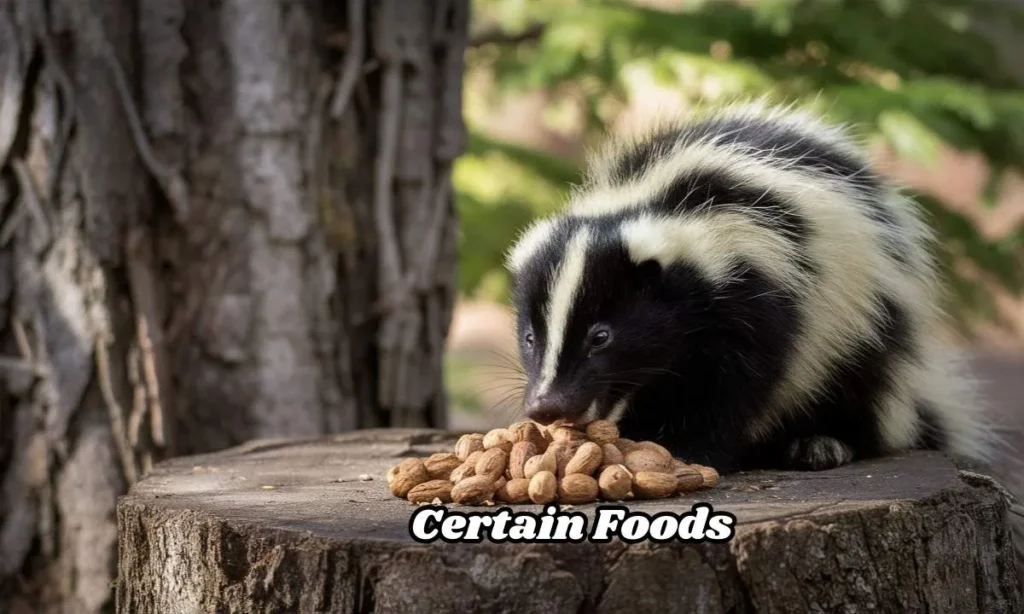
Many animals enjoy a variety of foods, and skunks are no exception. They often munch on fruits, insects, and, yes, even nuts. But not all foods are safe for these black and white creatures. Some can pose serious health risks. Understanding what skunks should avoid is crucial for their well-being. Today, let’s explore the hazards certain foods, including nuts, can present to skunks.
Foods Harmful To Skunks
Skunks are omnivores, which means they eat both plants and animals. While this allows them a wide range of foods, it’s not a free pass to eat everything. Some items can be harmful to skunks. Here’s a list of foods that skunks should steer clear of:
- Chocolate: Just like with dogs, chocolate is toxic to skunks.
- Onions and Garlic: These can cause blood disorders in skunks.
- Caffeinated Beverages: Caffeine can harm a skunk’s nervous system.
- Alcohol: It can be potentially deadly for skunks.
- High-Fat Foods: These can lead to obesity and other health problems.
It’s not just about avoiding certain foods but also about the right portion sizes. Overfeeding can lead to obesity, which brings its own set of issues for skunks. Here’s a quick look at the recommended treats and their portion sizes:
| Treat | Portion Size |
|---|---|
| Nuts | 1-2 pieces |
| Fruits | 1-2 small slices |
| Vegetables | 1-2 small slices |
Potential Dangers Of Nuts
While skunks might find nuts tasty, they can be dangerous. Let’s look at the potential risks:
- Choking Hazard: Nuts can be a choking risk, especially for younger skunks.
- Obesity: Nuts are high in fats and can lead to weight problems if overeat.
- Allergies: Skunks, like humans, can have allergies. Nuts may trigger these.
- Intestinal Blockage: Hard nuts may cause blockages in a skunk’s digestive system.
Given these dangers, it’s vital to monitor a skunk’s intake of nuts. Here are tips to keep them safe:
- Limit Quantity: Offer nuts sparingly as an occasional treat.
- Choose Safely: Opt for unsalted and uncoated nuts to avoid extra chemicals.
- Monitor Health: Watch for any signs of allergies or digestive issues.
Responsible feeding practices ensure skunks enjoy nuts without the risks. Always prioritize their health and safety when offering any treats.
Feeding Skunks In Captivity
Do you wonder if skunks eat nuts? What about feeding skunks in captivity? It’s important to know what these cute, striped creatures eat. Especially if you have one as a pet. Let’s dive into their diet and find out what’s best for them.
Dietary Guidelines For Pet Skunks
Feeding pet skunks the right food is key to their health. A balanced diet keeps them happy and healthy. Here’s what you need to know:
- Vegetables should be a big part of their diet. Think carrots, peas, and leafy greens.
- Fruits can be a sweet treat. Apples, bananas, and berries are great choices.
- They need protein. Cooked chicken, turkey, and eggs are good options.
- Avoid chocolates and caffeinated items. They are harmful to skunks.
Remember, every skunk is different. What works for one may not work for another. Watch their weight and health. Adjust their diet as needed.
Nuts In Captive Skunk Diet
Nuts can be part of a skunk’s diet but with caution. Not all nuts are safe for them. Here’s a quick guide:
| Nut Type | Safe to Eat |
|---|---|
| Almonds | Yes, in moderation |
| Walnuts | Yes, but rarely |
| Macadamia Nuts | No, avoid |
Nuts should only be a small part of their diet. They are high in fat. Too many can lead to weight problems. Give them as a treat, not a meal. Always watch for any signs of allergies or upset stomach.
Managing Skunk Diet In Urban Settings
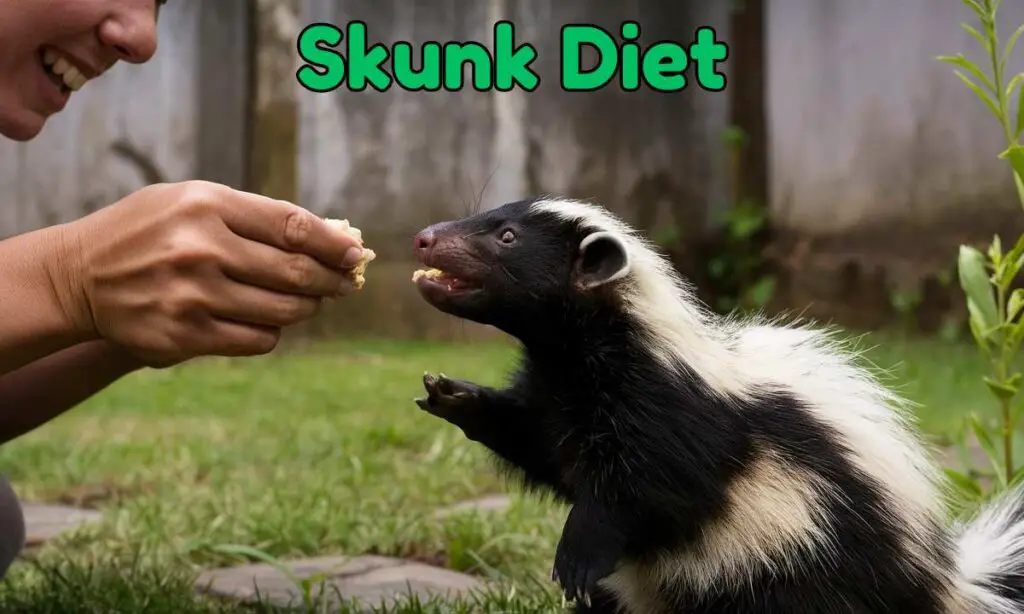
Skunks are known for their distinctive stripe and notorious spray. They are also curious foragers. In urban settings, these mammals adjust their diet, which can include nuts. Managing what skunks eat in cities is vital for their health and our peace. It can stop them from scavenging in trash and lessen human-skunk conflicts.
Foraging Behavior In Urban Areas
Skunks are opportunistic eaters. They adapt their diet based on what’s available. In cities, they often turn to easy food sources. These include:
- Garbage bins: Skunks dig through trash for leftovers.
- Gardens: They eat fruits and veggies from gardens.
- Compost piles: These provide a buffet for skunks.
Residents can manage skunk diets by securing trash and compost bins. They can also use fencing to protect gardens. This encourages skunks to look for natural food sources, like nuts.
| Food Source | Impact on Skunks |
|---|---|
| Trash | May cause health issues |
| Gardens | Can lead to human-wildlife conflict |
| Natural Foods | Healthier for skunks |
By altering the availability of food, we can shift skunk foraging habits. This can reduce their reliance on human-provided foods.
Balancing Natural And Supplemental Foods
Skunks need a balanced diet to thrive. A mix of natural and supplemental foods is key in urban areas. Natural foods include:
- Insects: They are a protein-rich food source.
- Nuts: These offer fats and nutrients.
- Fruits: Skunks enjoy seasonal fruits.
Supplemental foods can be helpful, especially in winter. Yet, it’s important to control what and how much we provide. Feeding skunks can lead to:
- Over-reliance on humans
- Unnatural behavior changes
- Potential health issues
Residents can plant nut-bearing trees and shrubs to support skunks. These natural food sources allow skunks to forage as they would in the wild. They also add beauty and value to the urban landscape.
Ultimately, a balance between natural foods and minimal human intervention is the goal. This approach respects skunks’ wild nature and promotes coexistence in urban settings.
Conclusion
Skunks have diverse diets, and nuts are certainly a part of their foraging finds. They aren’t picky eaters, embracing a variety of foods nature offers. As omnivores, their choice to include nuts provides essential nutrients. Remember, a skunk’s eating habits reflect its adaptable survival strategy in the wild.
Embrace your curiosity about wildlife and continue exploring the fascinating diets of nature’s creatures.

